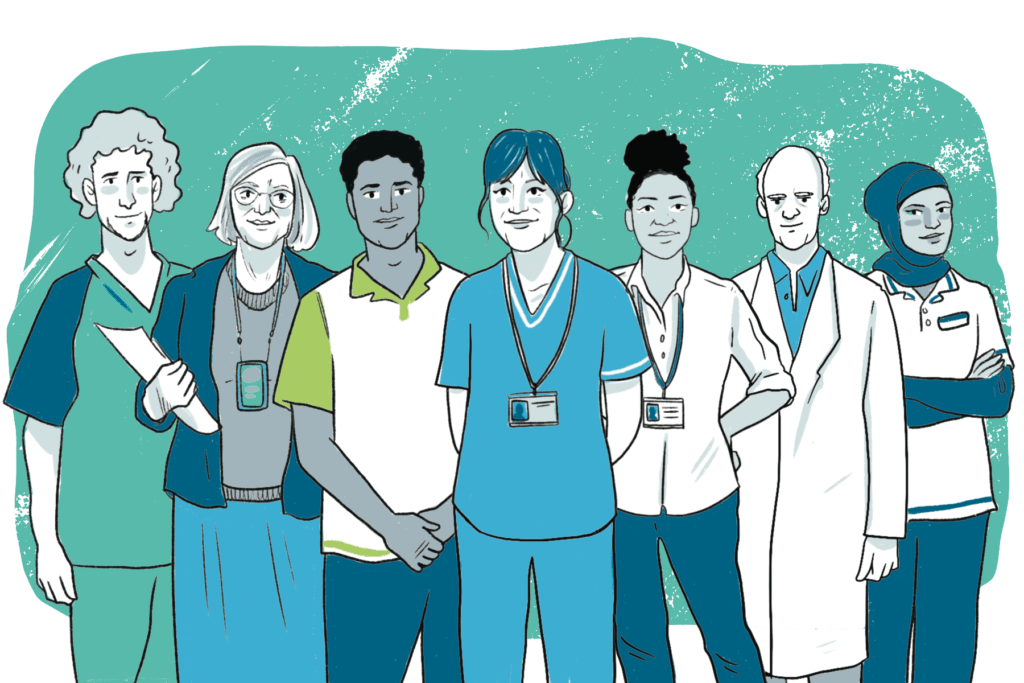“I didn’t know I was a carrier”
Haemnet’s Cinderella Study explores the real life experience of women with bleeding disorders in the UK. Our third animation, Struggles and Support, tells the story of a mother who discovers she has the haemophilia gene when her son is diagnosed with haemophilia as a baby. This story is based on real life testimony shared with the study team – and it is not unusual in haemophilia.
Family history first
The longstanding but mistaken belief that haemophilia doesn’t affect girls plays into the idea that haemophilia is ‘out of the family’ if you have daughters. The inheritance pattern of haemophilia says otherwise. All daughters of men who have haemophilia will carry the haemophilia gene. If a woman has the haemophilia gene, there is a 50/50 chance that her sons will have haemophilia and a 50/50 chance that her daughters will carry the gene.
On the surface, having daughters means that haemophilia may appear to ‘skip’ a generation or more – but the gene can still be passed on. If the family history of haemophilia isn’t shared, diagnosis may be missed or come as a complete surprise. It can also mean that a woman who doesn’t know she is affected by haemophilia gives birth without the recommended precautions being in place, which is a risk to both her and her child.
Unexpected diagnosis
When a child is unexpectedly diagnosed with haemophilia, the main focus is inevitably on their medical and physical needs. Few would argue with the importance of this. But when the child’s mother is diagnosed at the same time, she needs to come to terms with two diagnoses – her child’s and her own – and this can sometimes be overlooked.
The emotional and psychological impacts of an unexpected haemophilia diagnosis are considerable, to say the least. This time was described as ‘frightening’ and ‘terrifying’ by women who spoke with the Cinderella Study team. They also described feeling anxious and guilty at having passed on the condition. Over time, these feelings were accompanied by pressure and emotional stress around treatment options and the challenges associated with them.
Symptoms, struggles and support
The other thing to remember is that women who carry the haemophilia gene can have bleeding symptoms. Being diagnosed in adulthood sometimes provides a long overdue explanation for symptoms that have been present throughout life. Many women normalise symptoms like bruising or heavy periods as ‘just part of being a woman’ or because other female family members experience them too.
But even after diagnosis it’s not unusual for mothers who have the haemophilia gene to downplay their symptoms, even when they need medication to help control bleeding and its impact. Some mothers told the study team their symptoms are ‘nothing’ compared to what their child experiences as a result of having haemophilia. They expressed feelings of guilt and sadness. Some felt isolated at times, believing that nobody could truly understand what they were going through. In this scenario, women arguably need emotional and psychological support as much as the medicines that help tackle any physical symptoms.
While women affected by bleeding disorders should have access to psychology services as part of their routine care, the informal emotional support offered within the haemophilia community is invaluable. Connecting with a peer support network provides an opportunity to talk with people who really know and understand, through their own lived experience, what it is to be diagnosed with and live with a child who has a bleeding disorder.
Further reading
Jenner K. Bruises, bleeds and babies – the Cinderella stories. 4 August 2021. Haemnet Blog
Jenner K. It’s not all about boys. 3 February 2021. Haemnet Blog


